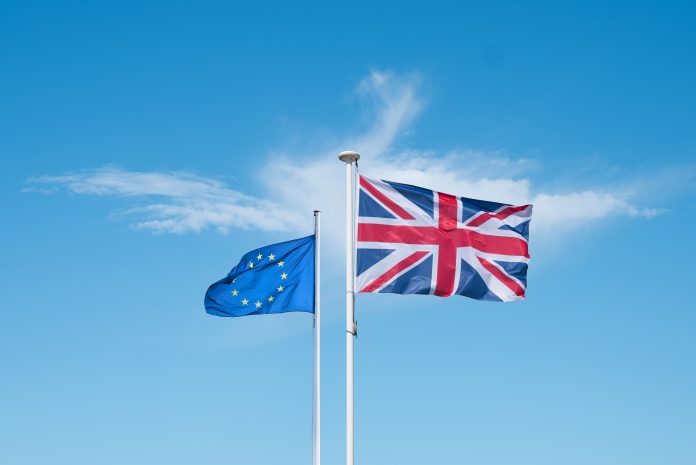Nigel Wilcock, Executive Director at the Institute of Economic Development (IED), discusses the post-Brexit economy, examining the critical economic challenges that have emerged following the UK’s departure from the EU
The ability to provide a clear-headed economic analysis of a change in policy has a habit of being obscured by wider events.
So, it has been with Brexit; no sooner was the Trade and Cooperation Agreement in place than the global economy was reeling from the impact of COVID and any steady recovery from that crisis was thrown out of kilter by the Russian invasion of Ukraine.
Dealing with continued economic damage and trade friction
The economic haze of these events is beginning to clear, and the true state of the post-Brexit economy is becoming clearer. There is little doubt that the decision to leave the European Union has caused economic damage.
Why, given that we signed a Trade and Cooperation Agreement, would that be the case? In general terms, there are four areas where Brexit has been detrimental to the UK economy: trade friction, unequal adoption of regulations, movement of labour and sentiment.
Trade friction has been somewhat brushed off in the media as extra paperwork, but this underplays its impact – and for some, dealing with some of our largest trading markets has become impossible or prohibitively costly. The impact on small businesses and some specific sectors across the UK has been severe even if the headline trade figures with the EU in 2022 were at their highest level by value.
The UK has also adopted a position that, since Brexit, it has yet to put the regulations it could enforce on EU imports in place. Creating friction on inbound products would harm the UK economy. Still, in the agri-food market, in particular, UK exports are more complex than ever, whilst there is a continued free flow of imports unrestricted by the regulations the UK could put in place.
The post-Brexit economy and the “productivity penalty”
From a workforce perspective, it is becoming clear that some industries are suffering from staff shortages, and at least some of this can be attributed to the inability to backfill vacancies through the employment of EU nationals.
Finally, against the backdrop of these various issues, there is a risk that businesses simply do not prioritise the potential benefits of working with Europe, given the sentiment that Brexit created.
The extent to which this has all impacted the post-Brexit economy is difficult to assess accurately, but both the Bank of England and the Office for Budget Responsibility are clear that, overall, the impact is negative.
In February 2023, the Bank of England stated, ‘Brexit has dealt the UK economy a “productivity penalty” of £29bn, or £1,000 per household’. In March 2023, the OBR stated that Brexit ‘will reduce long-run productivity by 4% relative to remaining in the EU’.
The economic headwinds from Brexit are still ongoing. Some longer-term issues are baked into the Trade and Cooperation Agreement. One example is that UK-originated content will need to significantly increase in electric vehicles if tariffs of 10% are not to be imposed on UK exports by 2027.
This issue helps highlight the potential risk of sunk investment in the UK. International businesses have long invested in the UK as an attractive country from which to export to Europe.
A business with a production plant in which it has sunk millions of pounds was not going to walk away from the UK immediately – but when there is a change in the product or the need to upgrade the production line, will more money be poured into their UK production base?
There has been a trickle of announcements suggesting that the existing stock of UK inward investment is now having its competitive position undermined when UK factory managers seek reinvestment decisions over competitor plants in Europe.
Brexit may be most damaging because of the position that the UK now finds itself in. At the time of the Brexit referendum, few overlaid the issue of the ageing workforce in the UK or the need for increased growth to raise the taxes to help pay for services.
Two issues prominent in the UK press recently have been the rise in economic inactivity (or people choosing to leave the labour market) and the need for growth. Neither issue has been helped by Brexit.

The continuing effects of Brexit are being felt everywhere
Brexit remains a toxic and divisive issue, and it does not look like the decision to leave the EU will be reconsidered anytime soon.
It is equally clear that the UK needs growth and will need to address the coming decline in working-age people.
This is likely to mean the UK is searching for ways to reduce its friction in trade and investment with as many markets as possible and the attraction of a larger workforce.
How this is framed in policy terms is a political rather than an economic issue.





![Europe’s housing crisis: A fundamental social right under pressure Run-down appartment building in southeast Europe set before a moody evening sky. High dynamic range photo. Please see my related collections... [url=search/lightbox/7431206][img]http://i161.photobucket.com/albums/t218/dave9296/Lightbox_Vetta.jpg[/img][/url]](https://www.openaccessgovernment.org/wp-content/uploads/2025/04/iStock-108309610-218x150.jpg)





